-
 Bitcoin
Bitcoin $107,360.0175
0.36% -
 Ethereum
Ethereum $2,425.2303
-1.15% -
 Tether USDt
Tether USDt $1.0003
-0.01% -
 XRP
XRP $2.1850
4.33% -
 BNB
BNB $646.4128
0.37% -
 Solana
Solana $146.0511
2.89% -
 USDC
USDC $0.9998
-0.01% -
 TRON
TRON $0.2754
1.55% -
 Dogecoin
Dogecoin $0.1626
0.80% -
 Cardano
Cardano $0.5599
0.49% -
 Hyperliquid
Hyperliquid $37.2026
0.62% -
 Bitcoin Cash
Bitcoin Cash $499.0346
0.17% -
 Sui
Sui $2.7251
2.86% -
 Chainlink
Chainlink $13.1187
-0.19% -
 UNUS SED LEO
UNUS SED LEO $9.0747
0.54% -
 Avalanche
Avalanche $17.6526
0.87% -
 Stellar
Stellar $0.2373
1.02% -
 Toncoin
Toncoin $2.8387
0.25% -
 Shiba Inu
Shiba Inu $0.0...01136
1.04% -
 Litecoin
Litecoin $85.2460
1.04% -
 Hedera
Hedera $0.1473
2.04% -
 Monero
Monero $314.3978
1.56% -
 Bitget Token
Bitget Token $4.6799
0.81% -
 Dai
Dai $1.0001
0.02% -
 Polkadot
Polkadot $3.3403
0.70% -
 Ethena USDe
Ethena USDe $1.0002
0.02% -
 Uniswap
Uniswap $6.9908
0.77% -
 Pi
Pi $0.5310
-3.57% -
 Pepe
Pepe $0.0...09292
-0.19% -
 Aave
Aave $254.8721
-2.23%
How to buy Bitcoin? A guide to the purchasing process for beginners
Buying Bitcoin is easy with the right guidance: choose a secure wallet, select a reputable exchange like Coinbase, fund your account, and make your purchase.
May 12, 2025 at 10:35 pm

Buying Bitcoin can seem daunting for beginners, but with the right guidance, it can be a straightforward process. This guide will walk you through the steps to purchase Bitcoin safely and efficiently. From setting up a wallet to making your first transaction, we'll cover everything you need to know to start your journey into the world of cryptocurrency.
Understanding Bitcoin and Its Importance
Before diving into the purchasing process, it's essential to understand what Bitcoin is and why it's important. Bitcoin is a decentralized digital currency that allows for peer-to-peer transactions without the need for intermediaries like banks. It was created in 2009 by an unknown person or group using the pseudonym Satoshi Nakamoto. Bitcoin's significance lies in its potential to revolutionize financial systems by providing a secure, transparent, and borderless means of exchanging value.
Choosing a Bitcoin Wallet
The first step in buying Bitcoin is to choose a secure wallet to store your digital assets. A Bitcoin wallet is a software program that stores the private and public keys you need to interact with the Bitcoin network. There are several types of wallets, including:
- Hardware Wallets: These are physical devices that store your Bitcoin offline, offering the highest level of security. Examples include Ledger and Trezor.
- Software Wallets: These are applications that you download and install on your computer or mobile device. Examples include Electrum and Exodus.
- Web Wallets: These are online wallets provided by cryptocurrency exchanges or third-party services. While convenient, they are generally less secure than hardware or software wallets.
To choose a wallet, consider your security needs and how often you plan to use your Bitcoin. For beginners, a software wallet like Electrum might be a good starting point due to its ease of use and strong security features.
Selecting a Cryptocurrency Exchange
Once you have a wallet, the next step is to choose a reputable cryptocurrency exchange where you can buy Bitcoin. An exchange is a platform that allows you to trade fiat currency (like USD or EUR) for cryptocurrencies. Some popular exchanges include:
- Coinbase: Known for its user-friendly interface and strong security measures, Coinbase is a great option for beginners.
- Binance: Offering a wide range of cryptocurrencies and advanced trading features, Binance is suitable for more experienced users.
- Kraken: Known for its robust security and a variety of trading pairs, Kraken is another reliable choice.
When selecting an exchange, consider factors such as fees, security, user interface, and the availability of your preferred payment methods. For beginners, Coinbase is often recommended due to its simplicity and strong customer support.
Setting Up an Account on the Exchange
To buy Bitcoin, you'll need to create an account on the exchange of your choice. Here's how to set up an account on Coinbase as an example:
- Visit the Coinbase website and click on the "Sign Up" button.
- Enter your personal information, including your name, email address, and a strong password.
- Verify your email address by clicking on the confirmation link sent to your inbox.
- Complete the identity verification process by providing a government-issued ID and a selfie. This step is required to comply with anti-money laundering (AML) and know your customer (KYC) regulations.
- Set up two-factor authentication (2FA) for added security. This typically involves using an authenticator app like Google Authenticator.
Once your account is set up and verified, you can proceed to fund your account and buy Bitcoin.
Funding Your Account
Before you can buy Bitcoin, you need to deposit funds into your exchange account. Most exchanges offer various payment methods, including:
- Bank Transfer: This is often the cheapest option but can take several days to process.
- Credit/Debit Card: This is faster but may come with higher fees.
- PayPal: Some exchanges support PayPal, but this option is less common.
To fund your Coinbase account, for example:
- Log into your Coinbase account and navigate to the "Deposit" section.
- Choose your preferred payment method and follow the on-screen instructions to complete the deposit.
- Wait for the funds to be credited to your account. This can take anywhere from a few minutes to several days, depending on the method you chose.
Buying Bitcoin
With your account funded, you're ready to buy Bitcoin. Here's how to do it on Coinbase:
- Navigate to the "Buy/Sell" section of your Coinbase account.
- Select Bitcoin from the list of available cryptocurrencies.
- Enter the amount you want to buy. You can choose to buy a specific amount of Bitcoin or spend a certain amount of your local currency.
- Review the transaction details, including the total cost and any fees.
- Confirm the purchase and wait for the Bitcoin to be credited to your Coinbase wallet.
Once you've bought Bitcoin, you can keep it in your exchange wallet or transfer it to your personal wallet for added security.
Transferring Bitcoin to Your Wallet
If you decide to move your Bitcoin to a personal wallet, here's how to do it:
- Open your personal wallet and find the "Receive" or "Deposit" section.
- Generate a new Bitcoin address or use an existing one. This address is where you'll send your Bitcoin.
- Copy the Bitcoin address to your clipboard.
- Log into your exchange account and navigate to the "Withdraw" or "Send" section.
- Enter the Bitcoin address you copied from your personal wallet.
- Specify the amount of Bitcoin you want to transfer.
- Review the transaction details and confirm the withdrawal.
The Bitcoin should arrive in your personal wallet within a few minutes to an hour, depending on network congestion.
Frequently Asked Questions
Q: Can I buy Bitcoin with cash?
A: Yes, some exchanges and peer-to-peer platforms allow you to buy Bitcoin with cash. However, this method is less common and may involve meeting someone in person or using a cash deposit at a bank or ATM.
Q: Is it safe to store Bitcoin on an exchange?
A: While reputable exchanges have strong security measures, it's generally safer to store your Bitcoin in a personal wallet, especially if you're holding it for the long term. Exchanges are more vulnerable to hacks and can sometimes freeze withdrawals.
Q: How long does it take to buy Bitcoin?
A: The time it takes to buy Bitcoin depends on the payment method you use. Bank transfers can take several days, while credit/debit card purchases are usually processed within minutes. The actual purchase of Bitcoin on the exchange is typically instant.
Q: What are the fees associated with buying Bitcoin?
A: Fees vary depending on the exchange and payment method. Exchanges typically charge a transaction fee, which can range from 0.5% to 4%. Additionally, there may be fees associated with your chosen payment method, such as credit card processing fees.
Disclaimer:info@kdj.com
The information provided is not trading advice. kdj.com does not assume any responsibility for any investments made based on the information provided in this article. Cryptocurrencies are highly volatile and it is highly recommended that you invest with caution after thorough research!
If you believe that the content used on this website infringes your copyright, please contact us immediately (info@kdj.com) and we will delete it promptly.
- Across Crypto Project Faces Heat: Secret $23M Transfer Sparks Governance Debate
- 2025-06-28 16:30:13
- Trump Coin's Wild Ride: Liquidity Drain, Exchange Deposits, and What It Means for Binance & OKX
- 2025-06-28 16:50:13
- Trump, Memecoin Mania, and Whale Watching: A New York Minute in Crypto
- 2025-06-28 16:30:13
- Shiba Inu, Lending Coins, and Early Holders: A New Frontier
- 2025-06-28 16:51:59
- Meme Coins in July 2025: Investing in the Future of Hype?
- 2025-06-28 16:51:59
- SUI's Trending Surge: Decoding the Reasons Behind the Hype
- 2025-06-28 16:55:12
Related knowledge
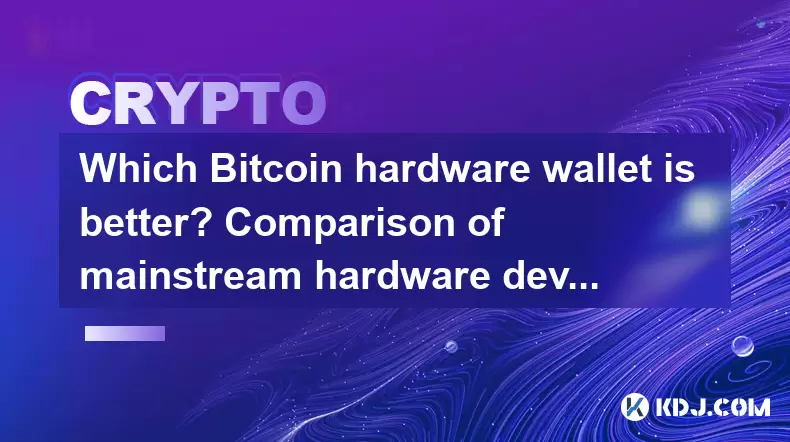
Which Bitcoin hardware wallet is better? Comparison of mainstream hardware devices
Jun 16,2025 at 02:08am
What Is a Bitcoin Hardware Wallet?A Bitcoin hardware wallet is a physical device designed to securely store the private keys associated with your cryptocurrency holdings. Unlike software wallets, which are more vulnerable to online threats, hardware wallets keep private keys offline, significantly reducing the risk of unauthorized access. These devices ...
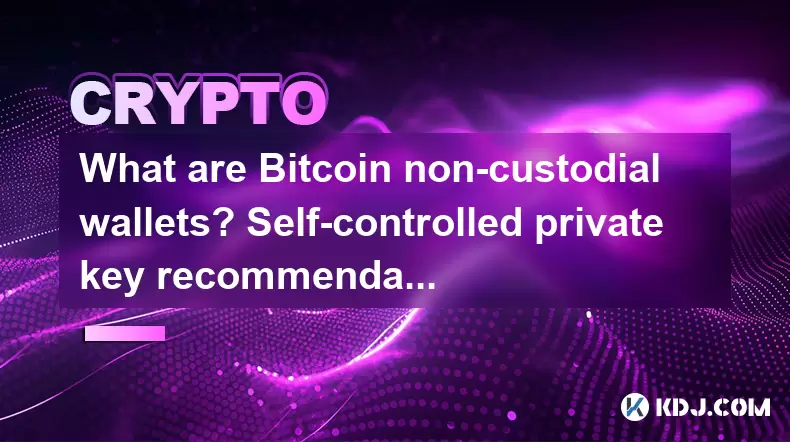
What are Bitcoin non-custodial wallets? Self-controlled private key recommendation
Jun 16,2025 at 11:29pm
Understanding Bitcoin Non-Custodial WalletsA Bitcoin non-custodial wallet is a type of digital wallet where users retain full control over their private keys. Unlike custodial wallets, which are managed by third-party services such as exchanges, non-custodial wallets ensure that only the user can access and manage their funds. This means no intermediary...
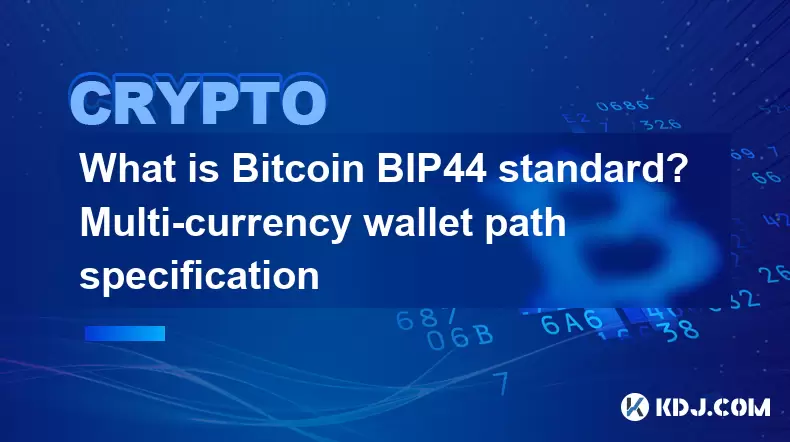
What is Bitcoin BIP44 standard? Multi-currency wallet path specification
Jun 15,2025 at 04:08pm
Understanding the BIP44 Standard in Bitcoin and CryptocurrencyThe BIP44 standard, which stands for Bitcoin Improvement Proposal 44, is a widely adopted hierarchical deterministic wallet structure used across various cryptocurrencies. It defines a structured path format that enables wallets to support multiple currencies while maintaining consistency and...
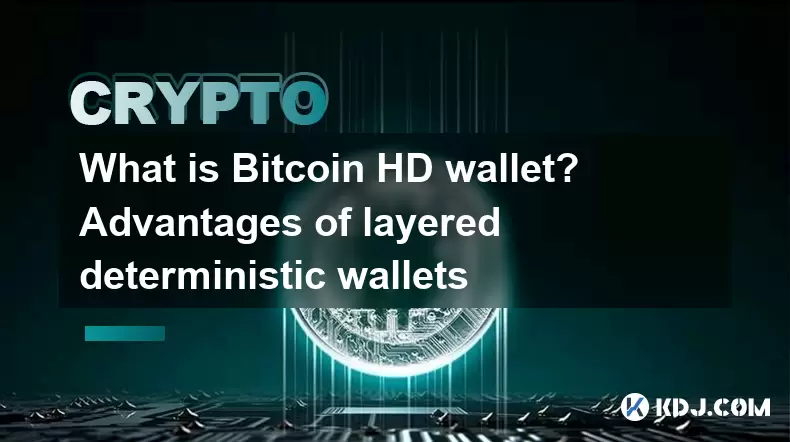
What is Bitcoin HD wallet? Advantages of layered deterministic wallets
Jun 16,2025 at 03:56pm
Understanding Bitcoin HD WalletsA Bitcoin HD wallet, or Hierarchical Deterministic wallet, is a type of cryptocurrency wallet that generates multiple keys and addresses from a single seed phrase. Unlike traditional wallets that create random private keys for each transaction, an HD wallet follows a structured hierarchy to derive keys in a deterministic ...
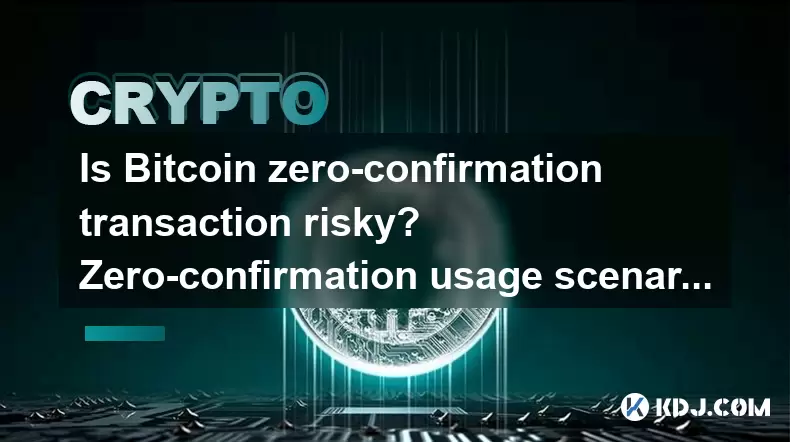
Is Bitcoin zero-confirmation transaction risky? Zero-confirmation usage scenarios
Jun 15,2025 at 03:57am
Understanding Zero-Confirmation Transactions in BitcoinBitcoin zero-confirmation transactions, often referred to as 'unconfirmed transactions,' are those that have been broadcast to the network but have not yet been included in a block. This means they have not received any confirmations from miners. While these transactions can be useful in certain con...
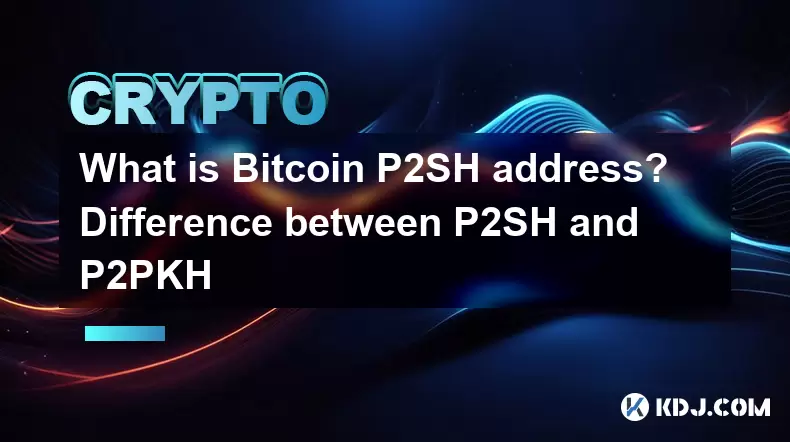
What is Bitcoin P2SH address? Difference between P2SH and P2PKH
Jun 16,2025 at 09:49pm
Understanding Bitcoin P2SH AddressesA Pay-to-Script-Hash (P2SH) address in the Bitcoin network is a type of address that allows users to send funds to a script hash rather than directly to a public key hash, as seen in earlier address formats. This innovation was introduced through BIP 16, enhancing flexibility and enabling more complex transaction type...

Which Bitcoin hardware wallet is better? Comparison of mainstream hardware devices
Jun 16,2025 at 02:08am
What Is a Bitcoin Hardware Wallet?A Bitcoin hardware wallet is a physical device designed to securely store the private keys associated with your cryptocurrency holdings. Unlike software wallets, which are more vulnerable to online threats, hardware wallets keep private keys offline, significantly reducing the risk of unauthorized access. These devices ...

What are Bitcoin non-custodial wallets? Self-controlled private key recommendation
Jun 16,2025 at 11:29pm
Understanding Bitcoin Non-Custodial WalletsA Bitcoin non-custodial wallet is a type of digital wallet where users retain full control over their private keys. Unlike custodial wallets, which are managed by third-party services such as exchanges, non-custodial wallets ensure that only the user can access and manage their funds. This means no intermediary...

What is Bitcoin BIP44 standard? Multi-currency wallet path specification
Jun 15,2025 at 04:08pm
Understanding the BIP44 Standard in Bitcoin and CryptocurrencyThe BIP44 standard, which stands for Bitcoin Improvement Proposal 44, is a widely adopted hierarchical deterministic wallet structure used across various cryptocurrencies. It defines a structured path format that enables wallets to support multiple currencies while maintaining consistency and...

What is Bitcoin HD wallet? Advantages of layered deterministic wallets
Jun 16,2025 at 03:56pm
Understanding Bitcoin HD WalletsA Bitcoin HD wallet, or Hierarchical Deterministic wallet, is a type of cryptocurrency wallet that generates multiple keys and addresses from a single seed phrase. Unlike traditional wallets that create random private keys for each transaction, an HD wallet follows a structured hierarchy to derive keys in a deterministic ...

Is Bitcoin zero-confirmation transaction risky? Zero-confirmation usage scenarios
Jun 15,2025 at 03:57am
Understanding Zero-Confirmation Transactions in BitcoinBitcoin zero-confirmation transactions, often referred to as 'unconfirmed transactions,' are those that have been broadcast to the network but have not yet been included in a block. This means they have not received any confirmations from miners. While these transactions can be useful in certain con...

What is Bitcoin P2SH address? Difference between P2SH and P2PKH
Jun 16,2025 at 09:49pm
Understanding Bitcoin P2SH AddressesA Pay-to-Script-Hash (P2SH) address in the Bitcoin network is a type of address that allows users to send funds to a script hash rather than directly to a public key hash, as seen in earlier address formats. This innovation was introduced through BIP 16, enhancing flexibility and enabling more complex transaction type...
See all articles
























































































